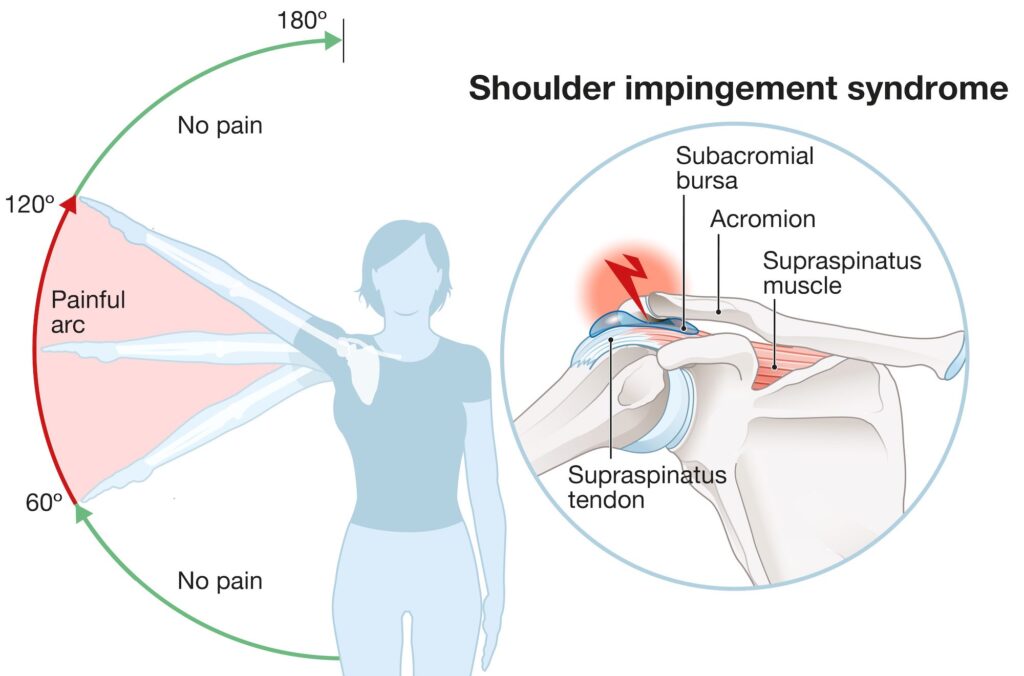Shoulder impingement syndrome is a condition that results in shoulder pain and difficulty lifting the arm. The shoulder is a ball and socket joint, which means it has a lot of range of motion. This also makes it susceptible to injury. There are several muscles and tendons around the shoulder joint that can be injured, leading to shoulder impingement syndrome.
In this blog post, I will discuss what shoulder impingement syndrome is, its causes, symptoms and treatment.
What are the symptoms of shoulder impingement syndrome?

The most common symptom of shoulder impingement syndrome is pain when lifting the arm. The pain is usually worse when the arm is raised above the head. Other symptoms may include weakness in the arm, stiffness in the shoulder and a loss of range of motion.
What are the causes of shoulder impingement syndrome?
There are several possible causes of shoulder impingement syndrome. The most common cause is overuse of the shoulder joint. This can occur from repetitive motions such as throwing a ball or lifting weights. Other causes may include injury to the shoulder, arthritis and poor posture.
How is shoulder impingement syndrome treated?
Treatment for shoulder impingement syndrome depends on the severity of the condition. For mild cases, rest and ice may be all that is needed to relieve symptoms. For more severe cases, physical therapy, PRP injections, or surgery may be necessary.
How can shoulder impingement syndrome be prevented?
There are several things you can do to prevent shoulder impingement syndrome. First, avoid overuse of the shoulder joint. Second, maintain good posture and alignment. Third, warm up before activity and stretch afterwards. Fourth, use proper technique when lifting weights or participating in other activities. Fifth, strengthen the muscles around the shoulder joint.
When to see a shoulder specialist?
If you have shoulder pain that is not relieved by rest and ice, you should see a shoulder specialist.
Shoulder impingement syndrome is a common condition, but it can be painful and debilitating. With proper treatment, most people can recover from shoulder impingement syndrome and return to their normal activities.
